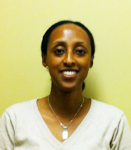 In the past few decades, the incidence and prevalence of noncommunicable diseases (NCDs) has continued to grow. The more we learn about the magnitude of NCDs, especially in developing countries, the more it’s clear that we need to focus on health workers as the center of our efforts to manage NCDs effectively.
In the past few decades, the incidence and prevalence of noncommunicable diseases (NCDs) has continued to grow. The more we learn about the magnitude of NCDs, especially in developing countries, the more it’s clear that we need to focus on health workers as the center of our efforts to manage NCDs effectively.
The first Global Ministerial Conference on Healthy Lifestyles and Noncommunicable Disease Control, held in April 2011 in Moscow, drew much-needed attention to the global burden of NCDs. The conference report showed that cardiovascular diseases, diabetes, cancer, and chronic respiratory diseases are the leading causes of morbidity, disability, and mortality in the world. NCDs cause over 60% of global deaths, 80% of which occur in developing countries. In addition NCDs are projected to contribute to 75% of global deaths by 2030, significantly impacting all levels of health services, health care costs, and the health workforce, as well as national productivity. The June 2011 Global Health Council annual conference provided further exposure for global and country-based research findings, program interventions, lessons learned, and the way forward in addressing NCDs. Read more »
